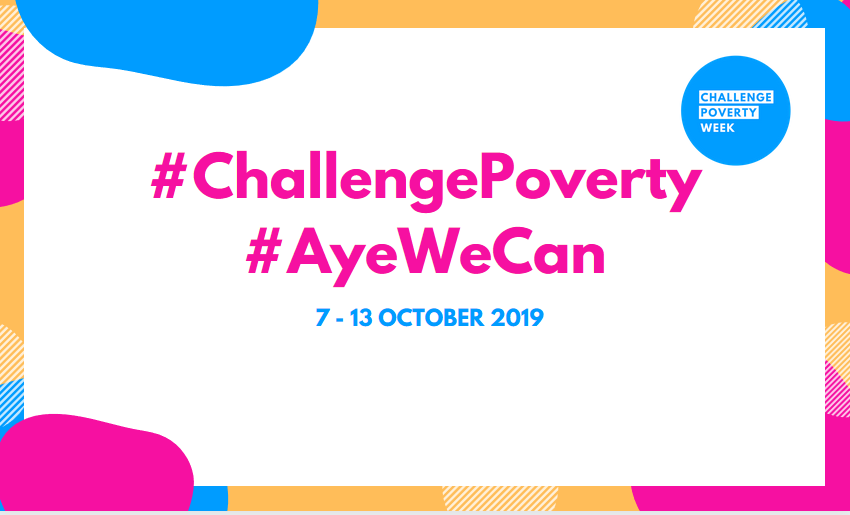The Evening Times ran an article about figures in a new report showing that women from Lanarkshire experience higher-than-average rates of stillbirth and neonatal deaths than other parts of Scotland. The region recorded the second-highest rate in Scotland with 6.42 deaths per 1,000 births. However it is worth noting that the figure of 7,096 Lanarkshire resident […]
Challenge Poverty Week

There are around a million people in Scotland whose lives are restricted by poverty. Around a quarter of a million of those people are children who are just setting out on their life journey. Poverty can have a detrimental impact on health and well-being outcomes for many children as they grow and will most often prevent them from reaching their full potential as adults in Scottish society.
Challenge Poverty Week begins on Monday (7 October) and offers NHS Lanarkshire staff the chance to highlight the services and resources available to help those impacted by poverty and to raise awareness of poverty.
This Scotland-wide campaign is designed to show that poverty exists in Scotland and affects us all, that people can work to end it, that it restricts people’s ability to take part in society, and that it can be solved by boosting incomes and reducing costs of living.
So what can the NHS do to help? By recognising and understanding why poverty happens, NHS Lanarkshire staff can play their part as the NHS reaches millions of people and is trusted. NHS staff might be the first or only point of contact with services that a patient experiencing poverty has.
Local NHS actions, such as strengthening financial inclusion referral pathways between health and money and welfare advice services, can help reduce the impact of poverty on our children and vulnerable groups.
Too many families in Scotland are struggling to get by and this is only going to get worse unless we do something about it. Health professionals have the potential to act early on in a child’s life. They are likely to see families at their most vulnerable, when they may learn best how to support their family.
Health professionals, in all settings, have a key role to play in recognising the impact of child poverty and ensuring that they provide the right health and well-being support alongside referral pathways to welfare advice services.
Health professionals are in a position to understand that children not being brought to appointments/parents not attending may be a consequence of poverty, and can respond compassionately. This kind of interaction can help aid healing as part of an intervention.
NHS Boards can make a difference too as an employer and procurer of goods and services. NHS Lanarkshire is a Living Wage Accredited employer and committed to pay the real living wage, securing the living wage for external contracts and protecting employees from adverse working conditions through responsible policies.
There are a number of activities and initiatives taking place across Lanarkshire during Challenge Poverty Week with NHS Lanarkshire staff encouraged to get involved. These sessions focus on some of the key poverty challenges being faced in Lanarkshire.
North and South Lanarkshire have produced local child poverty action reports that outline work done by the council, health board and wider partnership to tackle child poverty. These plans outline some of the key poverty challenges and focus on priorities such as increasing income from employment, reducing the cost of living and increasing income from social security and benefits in kind.
Poverty stops people participating in society and restricts people’s lives in hundreds of different ways – and it is women, children, minority groups and disabled people who are often affected the most. We need to turn compassion into action. We need to put this situation right so that everyone has a decent standard of living that allows them to grow and progress in their lives.
For more information about Challenge Poverty Week see www.challengepoverty.net
We will be posting daily messages on the NHS Lanarkshire Twitter and Facebook page. Follow the conversation on Twitter by following the hashtags #challengepoverty #AyeWeCan


Comments are closed.